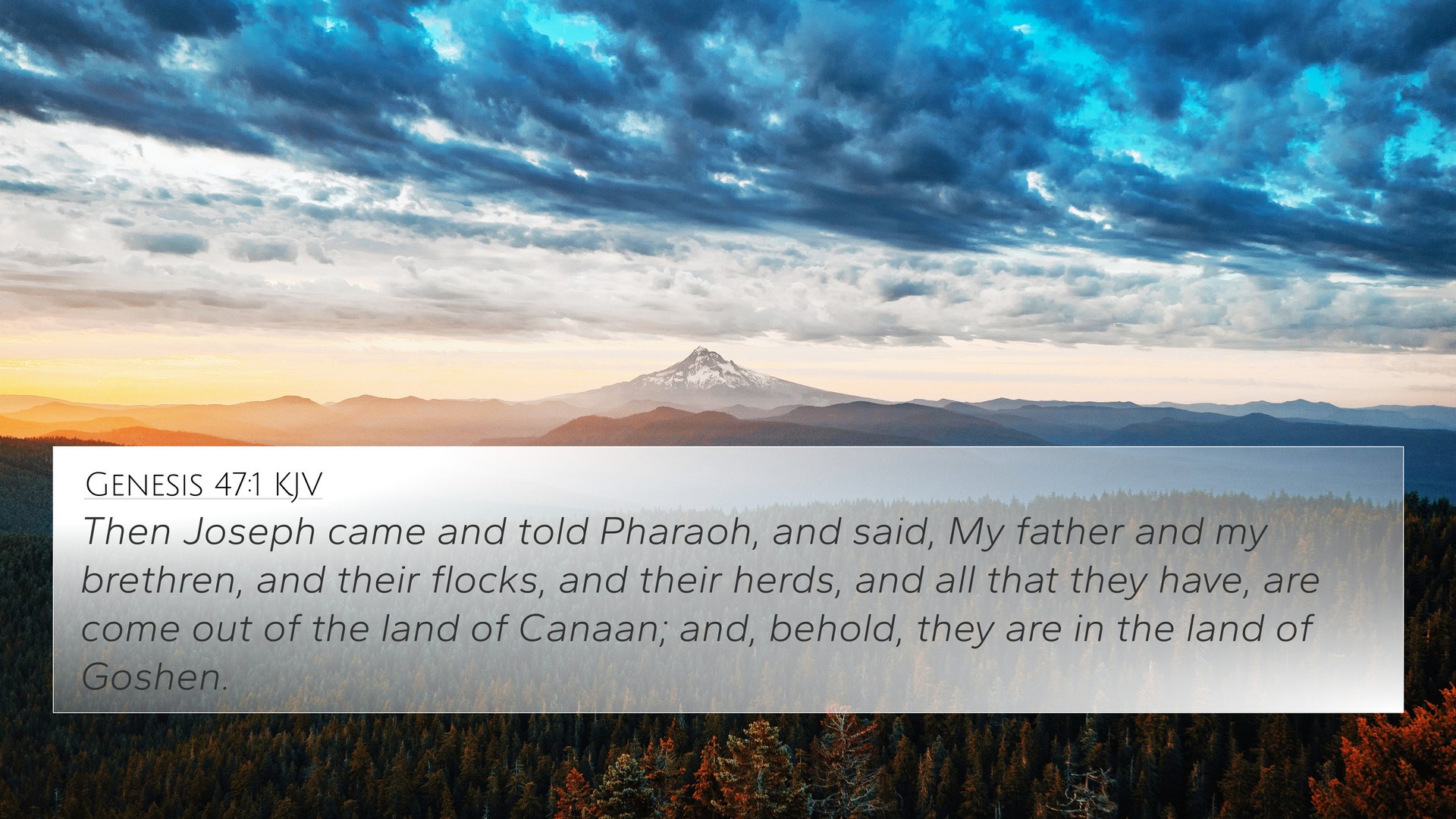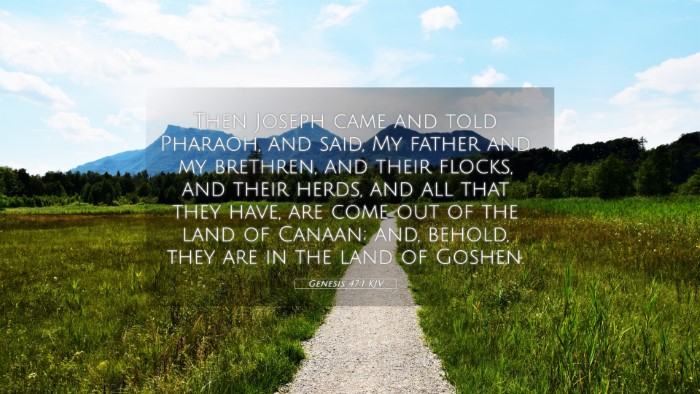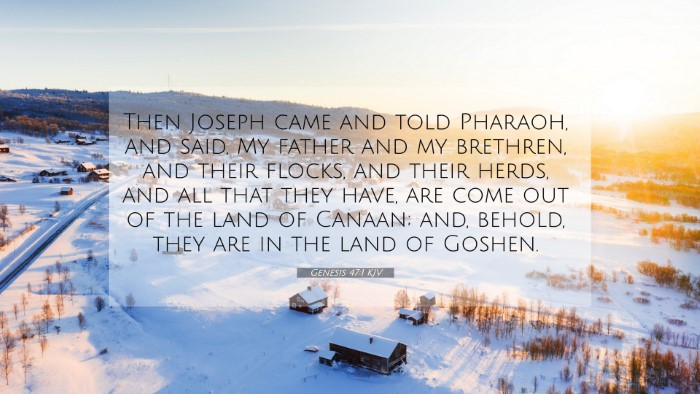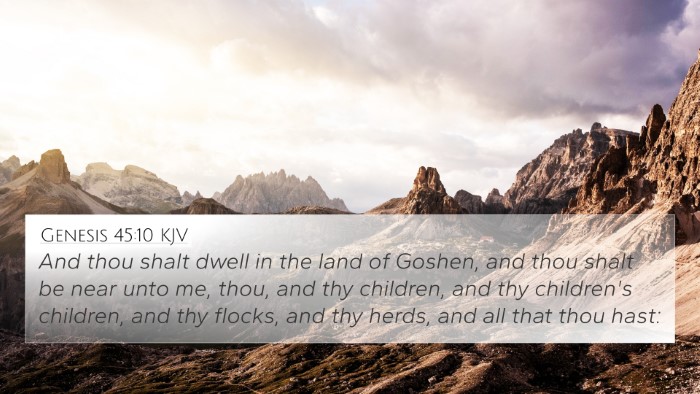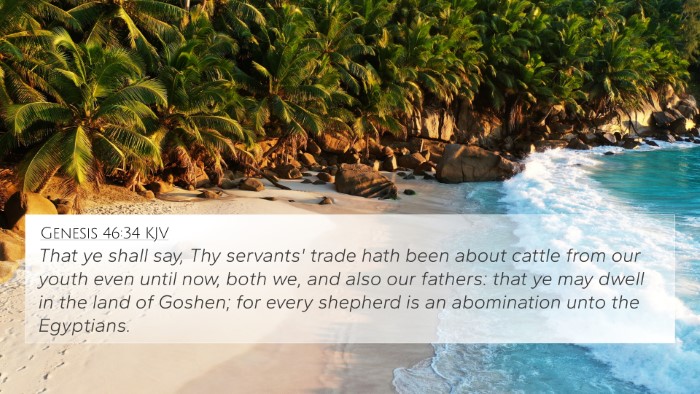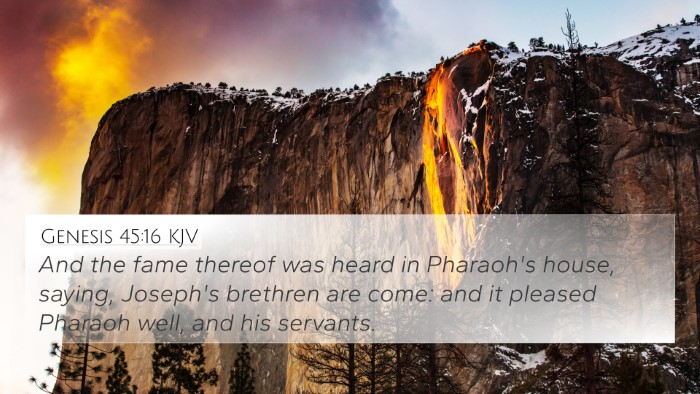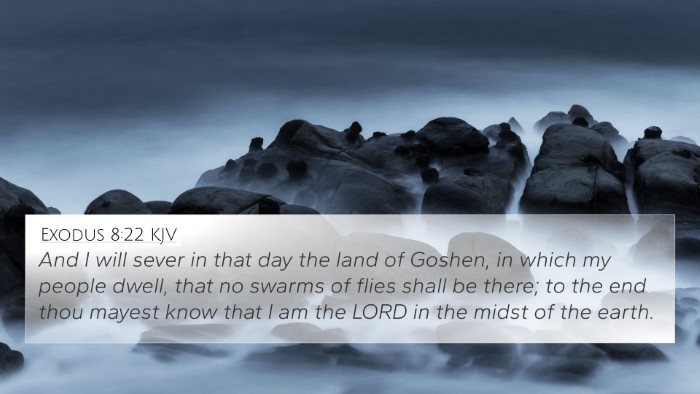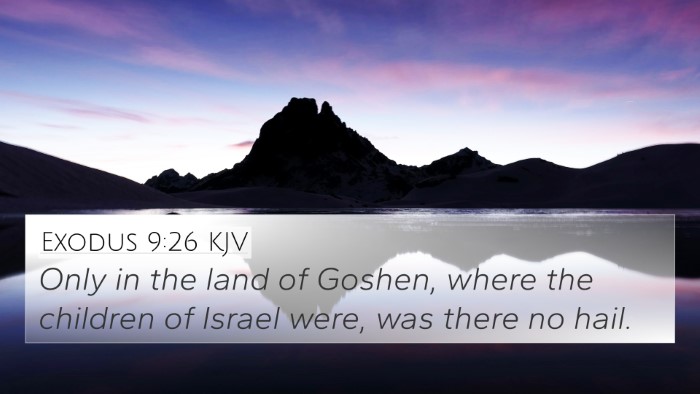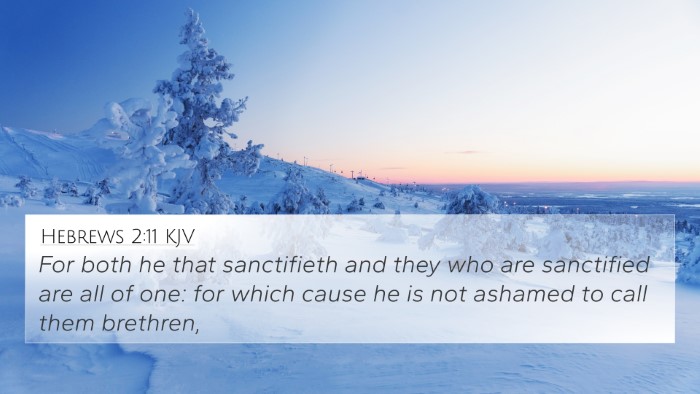Understanding Genesis 47:1
Genesis 47:1 details a significant moment in the unfolding story of Joseph, who has risen to power in Egypt. The verse reads:
"Then Joseph went in and told Pharaoh, and said, My father and my brethren, which were in the land of Canaan, are come unto me; and the men are shepherds, for their trade hath been to feed cattle: and they have brought their flocks, and their herds, and all that they have." (Genesis 47:1 KJV)
Verse Meaning and Context
This verse captures the moment when Joseph introduces his family to Pharaoh. Below are insights based on various public domain commentaries:
- Matthew Henry: Henry notes the importance of Joseph's role as a mediator between his family and the Egyptian ruler. By introducing his family, Joseph demonstrates his loyalty and love, while also highlighting the favored status he holds in Egypt.
- Albert Barnes: Barnes emphasizes the occupational identity of Joseph's family as shepherds, which was looked down upon in Egyptian society. This detail sets the stage for the interactions that follow in Pharaoh’s court.
- Adam Clarke: Clarke discusses the implications of Joseph’s introduction of his family and how it signifies the beginning of the Israelites' sojourn in Egypt. He stresses the fulfillment of God’s promise to Abraham about the wandering of his descendants.
Key Themes
Several themes emerge from Genesis 47:1:
- Family and Identity: The mention of Joseph's father and brethren emphasizes familial bonds and the importance of lineage in the biblical narrative.
- Divine Providence: The event underscores God's providential care in placing Joseph in a position to aid his family during a time of famine.
- Societal Status: The trade of shepherds reflects the cultural dynamics between the Egyptians and the Israelites, highlighting issues of acceptance and status.
Cross-References
This passage is interconnected with several other verses in the Bible that enhance its meaning. Here are some notable Bible verse cross-references:
- Genesis 37:28: Joseph's brothers sell him into slavery, setting the stage for his rise in Egypt.
- Genesis 46:29-30: Jacob's reunion with Joseph when he learns that Joseph is alive.
- Exodus 1:7: The growth of the Israelites in Egypt and God's promise to Abraham in Genesis 12.
- Genesis 15:13-14: God foretells the future affliction of Abraham’s descendants in a strange land.
- Genesis 50:20: Joseph acknowledges God’s sovereignty in the events surrounding his family.
- Deuteronomy 26:5: A reminder of Israel's past as they enter the Promised Land, paralleling their time in Egypt.
- Hebrews 11:21-22: A reference to Joseph’s faith and trust in God’s promise concerning the Exodus.
Exploring Connections Between Bible Verses
The various connections between Bible verses reveal thematic continuity throughout scripture. For example:
- Joseph's Dreams (Genesis 37:5-11): Joseph's role as a dreamer foreshadows his future position in Egypt.
- Famine in Egypt (Genesis 41:30): The context of Joseph's leadership arises from his ability to interpret Pharaoh's dreams about the famines that would come.
- Shepherding as a Theme: Linkages can be made to Psalm 23, which reflects the role of a shepherd both physically and spiritually.
Conclusion
The interpretation of Genesis 47:1 highlights the importance of family, providence, and societal dynamics. The cross-referencing of this verse with others enhances our understanding of its larger context within the biblical narrative.
By engaging with this verse through various comparisons and thematic explorations, we uncover deeper insights applicable to both individual faith and communal worship.
Tools for Bible Cross-Referencing
Utilizing tools for Bible cross-referencing can greatly enhance one's study:
- Use a Bible concordance to locate related verses based on keywords.
- Employ a Bible cross-reference guide for thematic studies.
- Refer to a cross-reference Bible study book for in-depth analysis.
